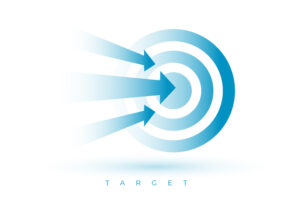7-Minute Read
“The study of the art of motorcycle maintenance is really a miniature study of the art of rationality itself. Working on a motorcycle, working well, caring, is to become part of a process, to achieve an inner peace of mind.” – Robert Pirsig
Innovation can be wonderful. But if innovating comes with the neglect of maintenance and care, the benefits are likely short-lived at best or outright harmful at worst. Maintenance is important across most worthwhile endeavors in life, including the pursuit of financial success. This piece explores the maintenance mindset along with the ongoing battle between innovation and maintenance.
Innovation vs. Maintenance
Innovation has several definitions. Let’s consider it here as the combination of knowledge, resources, and technologies to bring something new to the world (often in a profitable way). As a society, we celebrate innovation and we often collectively benefit from it.
But innovation has also become one of the most widespread and overused business buzzwords. Have you noticed how many professionals today have positions with the words “innovator” or “disruptor” in their job titles? Apparently, disruption and innovation have become two sides of the same coin.
In their thoughtful book, The Innovation Delusion, authors Lee Vinsel and Andrew Russell make a compelling case against pursuing innovation at all costs. As a society, this can distract us from the work that may ultimately matter the most: Maintenance, Care and Upkeep. A maintenance mindset yields benefits (and can prevent disaster) across all levels including individuals, businesses, schools, and governments.
Maintenance doesn’t have to come at the cost of innovation, or vice versa. Ideally, it’s a symbiotic relationship. Innovation can be done with maintenance in mind or directly improve the efficiency of the maintenance. Furthermore, good maintenance helps provides the proper conditions where innovations can happen.
But it takes work to get to that type of balance. Another way to think of the challenge: Innovation is what helps create the technologies we use today, but maintenance is what comes afterward. Attention often goes to the former, while the latter is underappreciated.
Do We Overlook the Innovations of the Past?
Vinsel and Russell make a clear distinction in their book about the difference between true innovation and “innovation speak”, which is mostly hype and talk about innovation but little substance.
Real life changing innovations can take years before they manifest and are accepted in our lives. If you think you can’t live without the latest gadget or app on your phone, imagine if you didn’t have the items from this short list:
- Planes, Trains and Automobiles (not the 1980s movie)
- Electric Power
- Clean Water and Sewage Treatment
- Heating and Air Conditioning
- Steel, Glass, Plastic and Concrete
- Penicillin and other Pharmaceutical breakthroughs
The items in the list above arguably have the most impact in our daily lives today, were once considered innovations, and they came from many decades ago. This is not to suggest that the innovations of today are somehow not valuable. It’s just easy to lose perspective.
Even the “high tech” products where we tend to give much of the recent innovation credit today, you might not realize how much work needs to go into maintaining them. Time has an erosive effect on public infrastructure. The same goes for computer systems, server “cloud” farms, mobile devices, and software tools. Continual bug fixes and cybersecurity improvements are paramount as we depend more on our electronics while demanding constant connectivity.
As for another modern innovation, the COVID vaccine development may turn out to be the most important development of our lifetime. Yet bringing the pandemic to an end requires more than scientific feats. It requires a sustained health maintenance mindset on a global scale.
We are All Maintainers
Most people in their day-to-day lives are maintainers and not innovators. It’s not that we don’t innovate; it’s only that most of the time we are users of the technology around us. If you take an inventory on how you spend your time at work and at home, what do you find?
Maintenance in the Workplace
For one you might find that most effort at work is about keeping systems and processes running. It’s also about training employees and keeping the end customers happy. Think about the demands of your own profession, whether past or present. How much time were you able to spend in creation, invention, or innovation? If the answer is “not much”, it may not have been from a lack of desire or talent. Sometimes it’s just the nature and unique demands of the work that demand a maintenance mindset.
You can forgive businesses for wanting to think of themselves as Silicon Valley startups. The desire is often to be the first to create “disruptive innovation”. But lasting business success is often boring and comes from incremental changes and preventative maintenance. For many small businesses, survival of the products and services come first. Innovations may (hopefully) follow but is it a stretch to think they can be planned in advance?
Maintenance at Home
This probably requires little convincing, but the maintenance challenges are seemingly endless at home. It can involve taking care of young children or elderly parents. It is managing our bodies through proper nutrition, exercise, and sleep. Then there’s the cooking, cleaning, laundry, yard care, car maintenance, and various other household repairs and projects.
Of course, if you have sufficient financial resources, you can hire others to perform many of your home maintenance services. But the key is that much needs to be done regularly for our lives to maintain order. Of course, if you feel overwhelmed by the number of things that need maintaining in your life, perhaps adopting a minimalist mindset can help too.
Financial Success Requires Significant Maintenance
No matter what your financial goals are, it helps to have a good system of financial maintenance in place. Think about how fast things can derail if you don’t pay your bills or file your taxes on time. How fast can debt build up if you don’t have a basic budgeting system in place?
When I think about my day-to-day work as a financial planner, it may come as little surprise that much of it is also maintenance!
Maintenance in Investment Management
There’s a quote I often come across from David Booth, founder at Dimensional Fund Advisors: “The important thing about an investment philosophy is that you have to have one you can stick with.”
These are words of wisdom. It’s only part of the solution to decide what your investment philosophy will be. Perhaps the harder part is sticking with it. Psychology and mindset are critical. It’s also helpful to have a good system for maintenance.
To get a general idea, skim this list of maintenance tasks I perform (and questions I ask) for every client who utilizes my firm’s investment management service.
- Monitoring Investments – Are investments in range of our pre-determined targets? If not, evaluate rebalancing trades while considering potential tax and transaction costs.
- Avoiding Cash Drag – Has new cash been added recently to an account? If so, does it need to be invested or held for some other spending goal? Are there any accumulating dividends that need to be reinvested?
- Raising Cash – Does cash need to be raised for systematic withdrawals or required distributions for certain IRAs?
- Processing Custodian Alerts – Are there alerts from the custodian (currently TD Ameritrade) that need to be addressed? Can I resolve them on my own or do I need to alert the client?
- Tracking IRA Contributions – Do IRA contributions need to be made before the tax deadline? If so, do we fund a traditional IRA, Roth IRA or SEP IRA? Are we properly tracking the cost basis of such accounts?
- Tax Aware Decisions – Are there opportunities to take capital gains or losses in taxable accounts? Should we execute a Roth IRA conversion? Answering these properly requires integration with the broader financial plan.
The point of listing out these tasks is to show that maintenance is a necessary part of investing; it allows your philosophy to thrive amid real world frictions. Of course, many of these same tasks are aided by technology (and yes innovations) that help me become more efficient and productive.
While we’re at it, good investment management is much more than finding the next hottest idea. Bitcoin and cyrptocurrencies are innovative no doubt. The underlying blockchain technology could be transformational. It’s amazing to hear stories of people investing a large portion of their net worth in this area, often with excess leverage (debt). Please forgive the obvious metaphor. Would that be like a beautiful, yet poorly maintained bridge, prone to collapse?
Maintenance in Financial Planning
Financial Planning involves a lot of preventative maintenance. One of the key steps in the Practice Standards for CFP Professionals is simply Monitoring Progress and Updating. I find that financial plans and recommendations require frequent review and updating. This ensures the plans are in line with the realities of my clients’ lives, which are dynamic and changing.
One benefit of financial planning is the preventative maintenance aspect; mitigating the impact when the unexpected occurs. It’s often just making sure a plan is not derailed if one thing goes wrong. That’s a central consideration in planning around investments, tax, debt, insurance, and estate matters.
Yet there’s also the continual search for innovative and creative financial solutions. I’ll admit in my younger days I was more enthralled the more complex a planning solution was. I’m still open to complexity today but not if comes at the expense of deferring the important financial maintenance.
Respect the Maintainers
Do we need more innovation, or do we need our products, services, and infrastructures to last longer? I suppose the wisdom is knowing when that choice is mutually exclusive and when it is not.
We live in a world where the innovative and disruptive tend to win. The reality is that innovators will get their share of money, fame, and admiration. But let’s balance the scales and respect the heroes behind the scenes who maintain the world that allows innovation to even be possible. I suspect and hope that you’re one of those heroes. Thank you for what you do!
If you have comments or questions on this piece, please drop me a line at: [email protected]
References
- https://www.amazon.com/Innovation-Delusion-Obsession-Disrupted-Matters/dp/0525575685
- https://krishnawealth.com/is-a-dose-of-minimalism-the-cure/
- https://www.cfp.net/ethics/code-of-ethics-and-standards-of-conduct
The information on this site is provided “AS IS” and without warranties of any kind either express or implied. To the fullest extent permissible pursuant to applicable laws, Krishna Wealth Planning LLC (referred to as “KWP”) disclaims all warranties, express or implied, including, but not limited to, implied warranties of merchantability, non-infringement, and suitability for a particular purpose.
KWP does not warrant that the information will be free from error. None of the information provided on this website is intended as investment, tax, accounting or legal advice, as an offer or solicitation of an offer to buy or sell, or as an endorsement of any company, security, fund, or other securities or non-securities offering. The information should not be relied upon for purposes of transacting securities or other investments. Your use of the information is at your sole risk. Under no circumstances shall KWP be liable for any direct, indirect, special or consequential damages that result from the use of, or the inability to use, the materials in this site, even if KWP or a KWP authorized representative has been advised of the possibility of such damages.
In no event shall KWP have any liability to you for damages, losses, and causes of action for accessing this site. Information on this website should not be considered a solicitation to buy, an offer to sell, or a recommendation of any security in any jurisdiction where such offer, solicitation, or recommendation would be unlawful or unauthorized.





